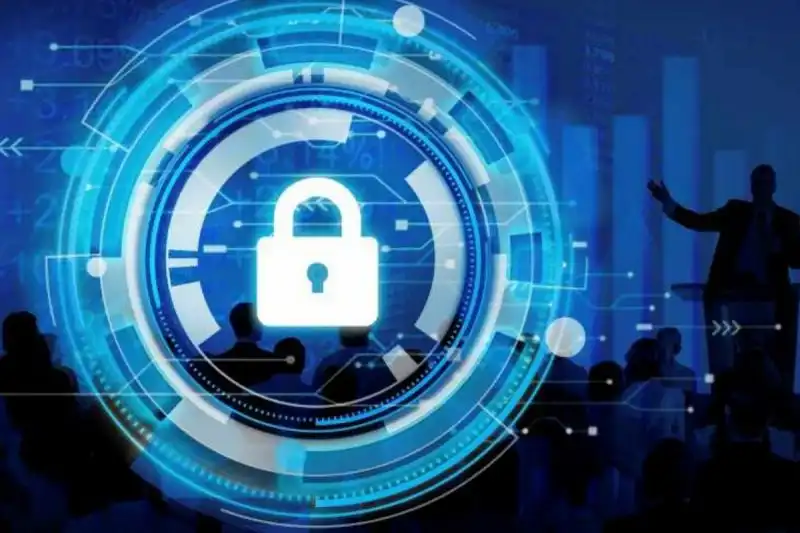Cybersecurity what it is and why is it important
Cybersecurity what it is and why is it important
Cybersecurity is defined as the protection of all systems connected to the Internet, such as hardware, software, and data from various cyber attacks and threats, as cybersecurity is used by organizations and people to protect them from unauthorized or permitted entry to data centers and other technological systems.
The cybersecurity application aims to create a security system to protect computers, network servers, mobile devices and all data on them from various malicious attackers, as some design cyber attacks with the aim of accessing sensitive information and data for an organization or person with the aim of stealing, deleting, or extorting through it.
Therefore, all institutions, companies, factories, government agencies and people are in dire need of a cybersecurity system.
Below, Prince Media provides you with some information about cybersecurity, which we hope you like
So let's dive deeper into the concept of cybersecurity
Cybersecurity is a constantly changing and evolving system due to the continuous development in technology and technologies, which in turn allow new methods of electronic attacks, and although large violations are disclosed, small enterprises must have cybersecurity a special priority as it is most likely Be vulnerable to viruses and fraudulent hacks.
Institutions and organizations must apply cybersecurity tools, train in risk management methods and management, and constantly update systems to keep pace with constantly changing updates in order to protect themselves and their employees from these attacks.
Today the world relies mainly on technology more than ever before, and this interest will increase more over time, and thus the creation of digital data has increased, as companies and governments today store that data on computers that are in turn transferred over networks to other computers, and their basic systems and devices contain Weaknesses which make it prey for hacking and espionage.
This data breach has devastating consequences for any commercial, government or even personal business, such as corrupting the company's reputation, stealing the customer base, losing the confidence of partners and customers, stealing source files and intellectual property, thus affecting competitiveness, the company's budget and revenues.
The importance of cybersecurity:
Cybersecurity is important because government and military organizations, financial and medical companies collect, process, and store unprecedented amounts of data on computers and other devices.
A large portion of this data can be sensitive information, whether it is intellectual property, financial data, personal information, or other types of data whose unauthorized access or exposure may have negative consequences.
Organizations transfer sensitive data across networks and other devices while doing business, and cybersecurity describes the system dedicated to protecting that information and the systems used to process or store it.
As the size and complexity of cyber attacks grow, companies and organizations, especially those tasked with protecting information related to national security, health, or financial records, must take steps to protect their sensitive business and employee information.
In March 2013, senior intelligence officials warned that cyberattacks and digital espionage pose the greatest national security threat to states and outweigh even terrorism.
Cybersecurity challenges:
To obtain effective cybersecurity, the organization needs to coordinate its efforts throughout its information system, and the elements of the Internet include all of the following:
Network security: the process of protecting a network from unwanted users, attacks, and intrusions.
Application Security: Applications require constant updates and testing to ensure that these programs are safe from attacks.
Endpoint security: Remote access is a necessary part of the business, but it can also be a data weakness. Endpoint security is the process of protecting remote access to a corporate network.
Data security: Data resides within networks and applications. Protecting company and customer information is a separate layer of security.
Identity management: This is the process of understanding the access that everyone in the organization has.
Database and Infrastructure Security: Everything in the network includes databases and physical equipment. The protection of these devices is no less important.
Cloud security: There are many files in digital or cloud environments. Protecting data in an online environment 100% is a huge challenge.
Mobile device security: Cell phones and tablets encompass nearly every type of security challenge in their own right.
Disaster recovery and business continuity planning: In the event of a breach, natural disaster data or other event data must be protected and work must continue, and for this you will need a plan.
End-user education: Users may be employees who access the network or customers who log into the company's application. Teaching good habits (password change, two-factor authentication, etc.) is an important part of cybersecurity.
The most difficult challenge in cybersecurity is the ever-evolving nature of the security risk itself, as organizations and government have focused most cybersecurity resources on surrounding security to protect the most critical system components and defend against known processors.
Today this approach has become insufficient, as threats advance and change more quickly than organizations can keep up with. As a result, consulting organizations are working to promote more proactive and adaptive approaches to cybersecurity. Likewise, the National Institute of Standards and Technology (NIST) issued guidelines in its risk assessment framework which It recommends a shift towards continuous monitoring and real-time evaluations, which is a focused approach






